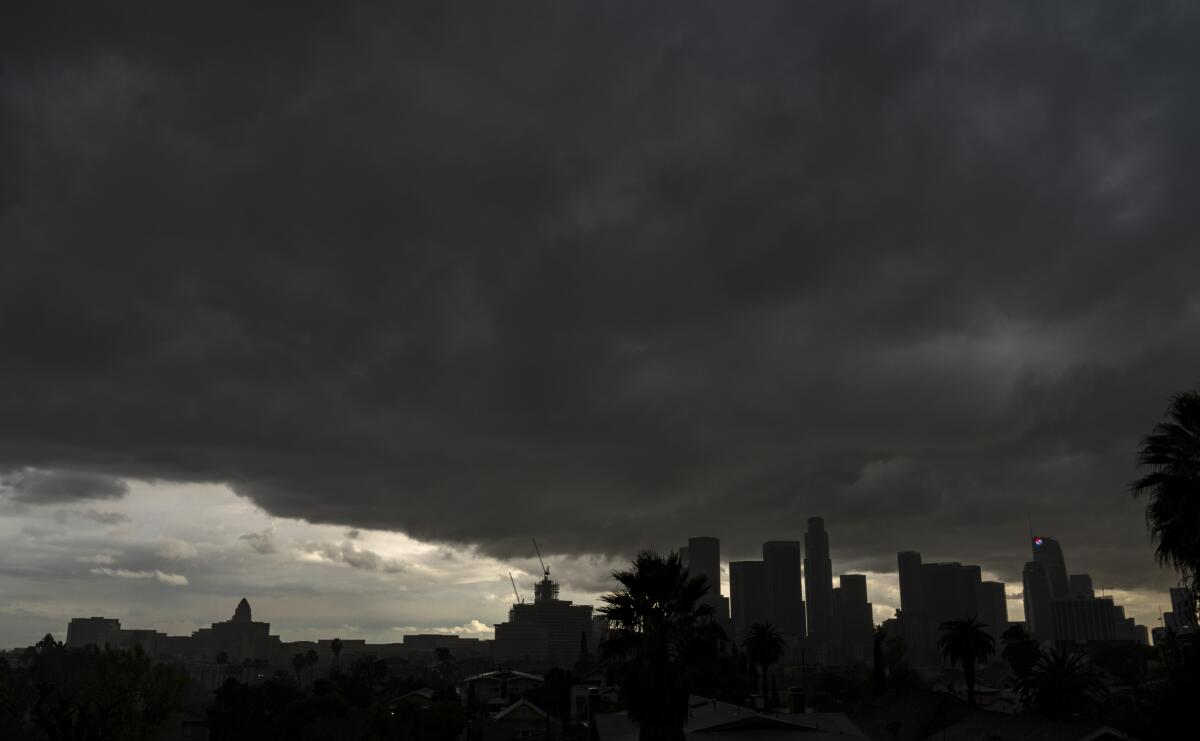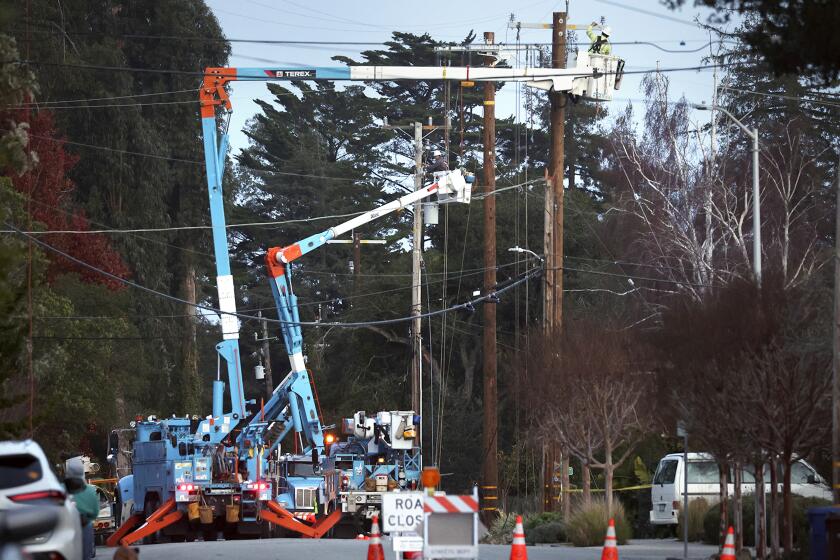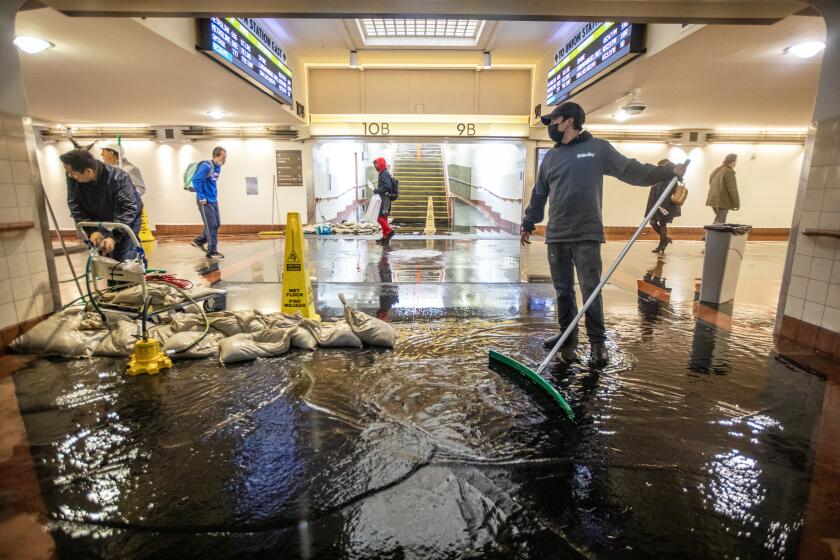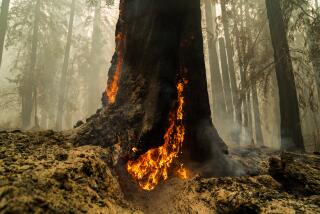Op-Ed: In ERs, January kicks off the worst. And then, rain

I hate this time of year.
The holidays are past, even the post New Yearâs Cyrillic parties we called âSerbian Christmasâ growing up in western Pennsylvania are faint memories obscured by rocket booms in Ukraine.
Two weeks in, 2023âs news is bad and here in California, itâs cold and itâs damp. A real West Coast winter is giving the drought a punching, and Iâm feeling beat down too.
Sixty years and a few thousand miles away from my childhood, I still feel the stall of each January physically. Iâm not the only one, I know. But I expect the yearly challenge, and I know how to get through it.
I teach emergency medicine residents and medical students that winter is the most dangerous time of the year â for patients and doctors.
Californiaâs power grid is typically tested during wildfire season or intense heat waves, but a winter storm system has challenged the stateâs electric grid in new ways. Experts say resiliency measures are needed.
Midway through the yearlong marathon of medical education, we feel trapped at work by shortened days. Our patients are forced together indoors by weather and custom through the holidays and Januaryâs return to school and work. Respiratory illnesses explode and ERs fill up. In every ER Iâve ever worked in, January to March is the worst.
And right now âatmospheric riversâ are converging on my backyard where the sump pump is dead, another thing that needs resuscitation. Itâs a near perfect metaphor for an ER doctor.
Is this year worse than others? It seems so, as interlocking viral illnesses collide with people who avoided medical care fearing COVID, and now can no longer wait for delayed operations or treatments.
Kids are sick and telemedicine isnât cutting it, clinics struggle and hospitals overflow with patients filling up every ER that I know about, big and small across the country.
We examine patients in waiting rooms, hallways and temporary treatment areas (tents, parking lots and lobbies) because patients who should be upstairs in the hospital are in our department for days.
And the homeless, the depressed, the mentally ill or suicidal person looking for safety? Forget about it â ERs themselves have become a trigger zone. But there is no place else to go except back to the streets or to jail.
One silver lining for rain-soaked Californians is that the IRS is giving many of them an extra month to file their 2022 tax returns.
Add on COVID anxiety bred by pre-vaccination fears of death, lost jobs, remote school and the vicious political demonization of medical science, and I feel Iâm working in a place where the veneer of First World medicine is wearing thin, every day seems a disaster.
I teach my residents and medical students to take a breath and see clearly what the story is at that very instant â so I take my own advice, change out of my wet clothes, scoop some chili into a bowl and punch buttons on the microwave.
Gathered moments between tasks are essential, even if only for a second. Multiple, small âbreak bitesâ recharge and rest you along the way. Sit down if you can.
The truth is that even in emergencies, you seldom need to go as fast as you think you do. In fact, going that fast is almost always a mistake because the small places between actions are guideposts too, places where your training offers different ways to go.
Sometimes the pause is longer while we see which stepping stone is right for a particular event now. The longer you do this, the more experience you have, the faster you fill in those pauses and know where the right next step could be. And then whether to take it.
Sometimes the direction of action is the difference between life and death, for patients and careers. The wisest doctor I ever knew taught with dramatic flourish: âDonât just do something, stand there!â
So many of us feel that the institutions that are essential to our lives are somehow at a low point. It sucks to be a cop, a teacher, a nurse, a soldier or a journalist. Everyone seems to be looking for a way out or a move to some other place where things will somehow be better. The news every day tells us otherwise.
Outside the rain has stopped. I am still here, slightly better, dried off and warmer. Itâs time to work my way back to the promise of spring, a moment at a time.
Mark Morocco is a Los Angeles physician and professor of emergency medicine.
More to Read
A cure for the common opinion
Get thought-provoking perspectives with our weekly newsletter.
You may occasionally receive promotional content from the Los Angeles Times.












